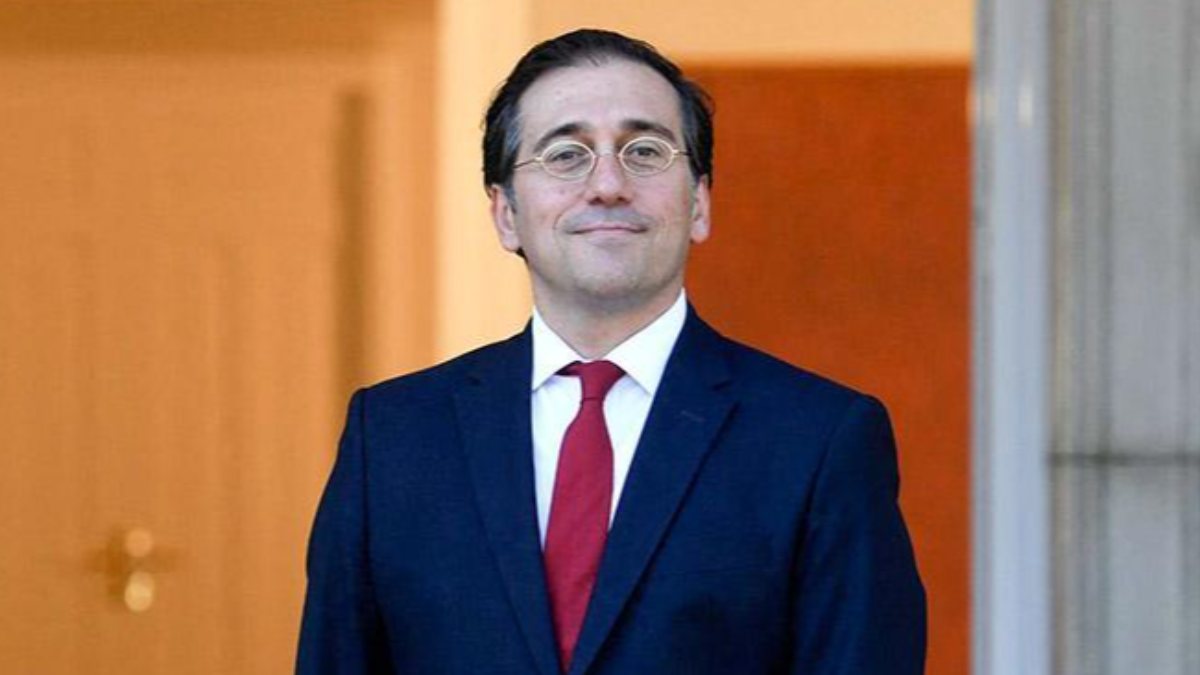Washington does not understand Türkiye’s security concerns in northern Syria and tends to think of the situation as a “security problem” when it is a “political problem,” according to the last US ambassador to serve in Syria.
“I think Washington in general, and also many analysts in Washington, do not understand how angry the American relationship with the YPG makes Turkey,” Robert Ford, who was the US ambassador to Syria between 2011 and 2014, told Anadolu in a Zoom interview.
“They think it’s just a small thing, and it’s necessary because of ISIS and the Turks should stop worrying about it. And it’s a kind of an American ignoring of a major Turkish concern,” he continued.
The US policy on Syria has been one of the most challenging issues between the two NATO allies as Türkiye has never accepted the US backing of the YPG because of its ties to the PKK, which has been recognized as a terrorist organization by both Türkiye and the US.
The US on the other hand sees the YPG, which was renamed the Syrian Democratic Forces (SDF), as a partner in the fight against Daesh/ISIS in Syria and does not recognize it as a terrorist group, although it does acknowledge the PKK as such.
The PKK has waged an armed campaign against Türkiye for more than 35 years and has been responsible for the deaths of more than 40,000 people.
Asked about the US strategy for defeating Daesh/ISIS in Syria, Ford, a veteran US diplomat who is currently a fellow at Yale University’s Jackson Institute for Global Affairs, said: “I think the mission is impossible.”

“And the fact that they have been there four years after the capture of Baghuz and still there is an ISIS insurgency tells me the mission cannot be achieved,” he said.
“They can stay in eastern Syria, but they cannot completely eliminate ISIS. It’s just a reality,” he added.
According to Ford, the Sunni Arabs in Syria’s Hasakah and Deir ez-Zor provinces could eliminate Daesh/ISIS but they do not have the “incentives” and “means” to do that.
“Americans need to think about how to de-radicalize fighters instead of just imprisoning them in remote prison camps, which we know from experience doesn’t work,” he stressed.
On US support to the YPG to defeat Daesh/ISIS, Ford said it had an “immediate short-term benefit” between 2015-2019.
“Like now, in 2023, can the YPG stop recruitment in places like Deir ez-Zor or Hasakah of unhappy young people that join ISIS? They can’t. In fact, if anything, there’s a lot of resentment among local Arab communities towards the YPG,” he said.
“This is a question of empowering the local communities to do more,” he added.

YPG-PKK ties
In response to a question about the YPG’s link with the PKK, Ford said: “We have to be honest, there is not a big difference between YPG fighters and the PKK.”
“And in fact, people who go to Qamishli and the autonomous administration tell me that they often hear Qandil accents among the people there. So we know they come from Qandil,” he said.
The PKK takes the Qandil Mountains in northern Iraq as its stronghold and is active in many cities and towns.
“The Americans can deny it, but that would be stupid. And I think frankly, the Americans have stopped denying it. Now they simply say it’s a practical measure, a kind of cooperation,”he said.
“I just think the Americans don’t take Turkish concerns very seriously. And they tend to think of this as a security problem when it’s a political problem.”
US-Iran tensions in Syria ‘will continue’
The recent tensions in Syria after an Iranian-backed group’s drone attack against a US base and the US targeting them with airstrikes put the spotlight on the continued presence of US troops in the country.
The US troops, who number nearly 1,000, will continue to stay in Syria, White House National Security Council spokesman John Kirby said last week, adding: “The mission in (fighting) ISIS (Daesh) is not going to change.”
Asked about the recent tensions, Ford said they “will continue.”
“There will be more Iranian attacks, and when there is a death, probably the Americans will respond sharply. I don’t see an end to it,” he said.
Neither side wants a “big war,” Ford noted, adding that it was “unusual” that President Joe Biden publicly said the US does not seek conflict with Iran, which he thinks is a sign that “they did not want to provoke that escalation.”

US troops in Syria ‘should come home’
According to Ford, the American mission in eastern Syria is going to continue “indefinitely” and he sees “no clear end to it.”
“The last stronghold of ISIS in Baghuz fell more than four years ago now. The Americans are still there. The Americans don’t have a clear idea what they need to withdraw,” he said, adding public support in the US is also “so far okay.”
Earlier this month, the US House of Representatives voted against a resolution directing the Biden administration to withdraw all US troops from Syria in a 103-321 vote.
“There is not yet in Washington a critical majority who support withdrawing the troops from eastern Syria or who support withdrawing aid from the Syrian Democratic Forces,” he said.
Ford said he believes the American troops in Syria “should come home.”
“I feel terrible that an American citizen died a couple of days ago for a mission which will never be achieved, and we should be honest about it,” he said regarding the airstrike by Iranian-backed groups against a US base in Syria, which resulted in the killing of an American contractor and the wounding of several US troops.













